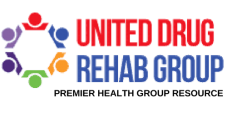Addiction & Denial
Drug Addiction Denial and How to Get Help
Denying the existence of a problem is extremely common among drug addicts. While there are different types of denial, they are all rooted in addiction itself. Acknowledging the problem is the first step toward addiction recovery, and denying that there is a substance abuse problem provides an addict an excuse to continue the destructive patterns. If your loved one is suffering from drug addiction, the first step toward getting help is encouraging them to acknowledge that there is a problem. For some people, admitting that they are addicts requires hitting rock bottom. Up until that point, it is still possible for them to insist that they are in control. Once they can acknowledge that there is a problem, getting help is possible.
Denial takes many forms. An addict may lie to you about their substance abuse, and they may even lie to themselves about it. As long as your loved one insists that they don’t have a problem, it will be difficult to get them to agree to any sort of drug rehab treatment. Joining a support group for families of people with addiction problems can be a helpful resource for coming up with strategies to cope while the addict is in active denial. It may be that the person knows there is a problem, but is not yet ready to admit it to others. Alternatively, your loved one may truly believe that he or she is in control of the drug use.
Getting help for drug addiction denial presents a difficult situation. Some families stage interventions to help the addict understand how his or her actions are affecting their loved ones. You must be careful to make sure the person with the problem does not feel attacked during an intervention. It is also crucial to remain calm when confronting an addict about their substance abuse problem. Although the person being confronted may try to shift blame onto the people around them, be careful not to take this behavior personally. If they lie, calmly present facts that counter those lies.
A successful intervention generally includes a plan to immediately enter a drug rehab program. If this can be arranged before the intervention takes place, it will make it much easier for the person with the drug problem to agree to get help. Consult with United drug rehab center that will accept your loved one before you plan an intervention. Some facilities have long waiting lists, while United drug rehab has the availability to take in clients immediately. Many types of insurance will cover at least some of the costs associated with drug rehab treatment.
Looking over the different forms of denial can help you or your loved one recognize the unhealthy thinking patterns that may be at play. There is hope for people with addiction, and recognizing that there is a problem is the first step toward breaking free of addiction. Being prepared for the different forms denial can take makes it easier for addicts to recognize these patterns in their own thinking process, and it can also make it easier for family members to recognize the typical forms of denial that are likely to take place. Addiction recovery is possible for those who take the first step of admitting that they have a problem. That is why getting past denial is crucial to overcoming addiction.
If you or a loved is suffer from addiction, it is never too late to call. The professionals at United Drug Rehab are here for you. Don’t let denial get in the way of getting help for yourself or a loved one.



